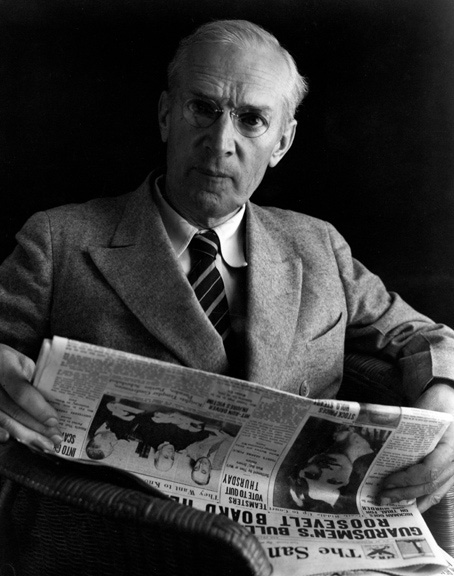Much of the higher education world, in the United States and beyond, is ecstatic that Donald Trump will be leaving power – although, as of this writing, his willingness to step down is unclear. His departure will bring some immediate and positive changes that will affect the American and also the international higher education landscape – both in tone and in American policy.
But Trumpism is far from gone. The kind of populism and nationalism that Trump exemplified remains part of American reality – and the realities of many other countries. Keep in mind that 70 million Americans voted for Trump even after experiencing four years of his erratic leadership. The United States remains politically polarised, with Republicans in control of the Senate and many of the state governments.
While Trump was voted out of office, pro-Trump Republicans did well in the election. And elsewhere, Trump-alike leaders of governments and big opposition parties are still strongly present, for instance, in Brazil, Hungary and Poland.
The divide between climate change deniers and those who are anti-internationalist and anti-immigration on the one hand, and those in favour of international collaboration to solve key problems locally and globally, is bigger than ever in the United States but also in the rest of the world.
American higher education retains its global reputation and attraction. America’s best universities still hold the top rankings, and the rest of the system remains popular, although the economic crisis and demographic changes will negatively impact some colleges and universities.
Surveys carried out during the COVID-19 crisis show that students around the world still want to study in the United States, although its market share, which was already declining before Trump came to power in 2016, continues to decline and will do so even under a Biden presidency.
Quick changes
The great rhetorical fog of Trump is already lifting from the American higher education landscape, even before President Biden takes office on 20 January 2021. The idea that the United States is an active participant in global higher education is being restored.
Of course, the American higher education community continued to engage internationally during the Trump years, but both the policies and the rhetoric of the Trump administration had an impact.
Visa restrictions, elements of the ‘Muslim ban’ that may still be in practice, the time restriction on student visas, tight regulations on Optional Practical Training and H-1B visas and other elements are likely to be ended quickly. Regulations concerning post-doctoral appointments are likely to be returned to traditional practice.
The path to obtaining green cards for foreign graduates is likely to be made easier. And the Deferred Action for Childhood Arrivals programme, which does not directly affect international higher education but provides protection to 643,000 immigrants, will be reinstated.
Existing programmes, such as Fulbright and other exchanges, which were under threat and suffered budget cuts, will be safe. The partisan politicisation of international initiatives of all kinds, such as the Voice of America and including those relating to higher education, will be ended.
Possible policy shifts
In general, American governmental policies relating to international higher education will revert to pre-Trump norms. There is likely to be greater scrutiny of the for-profit higher education sector domestically – and this will have some impact on the international operations of for-profits.
But due to the continuing COVID-19 crisis and the fiscal and economic disruptions related to it, new initiatives relating to international higher education are very unlikely.
Important issues such as racism and inequality in higher education in general, as well as in study abroad and international student policies, will get attention, given the strong focus of incoming vice-president Kamala Harris on these issues. But given their systemic presence in the sector, they will not be easy to overcome.
The China problem
It is likely that the highly negative rhetoric from the Trump administration concerning Chinese students, scholars and programmes in the United States will end, as will some of the often irrational restrictions imposed by the Trump administration, and academic relations with China will ‘normalise’.
But there is a broad consensus in the US government that there is a problem with, for example, intellectual property theft and concern with restrictions on academic freedom in China and related topics, and thus it is likely that tensions will continue – but in a context of rationality. On this geopolitical topic, there will be more alignment with European partners and Canada.
Broader trends
Overall, the transition to a Biden presidency in the United States will imply a substantive shift in tone toward more international collaboration in research and education and a revision of several of the draconian measures toward international students, faculty and partnerships. But one can wonder if it will be possible to correct the enormous damage to its international reputation of the past four years.
The trend of increasing competition from Asia will be difficult to reverse. European universities, although challenged by Brexit, as well as Canada seem better prepared for the end of the pandemic than higher education in the United States, even though its top institutions will continue to lead the rankings.
At best, one can say that international higher education will be in a less deplorable state under Biden than under Trump, and that in itself is something one has to be pleased about.
Philip G Altbach is research professor and academic advisor at the Center for International Higher Education, Boston College, United States. Hans de Wit is professor emeritus and academic advisor at the Center for International Higher Education, Boston College.
Source: Nirvana’s not coming – IHE implications of the US election

 Philip G Altbach and Hans de Wit
Philip G Altbach and Hans de Wit













 A former professor of Ohio State University pleaded guilty Thursday to a charge of transferring U.S.-backed research to China – a “sophisticated scheme” that prosecutors are hoping will land him five years in prison.
A former professor of Ohio State University pleaded guilty Thursday to a charge of transferring U.S.-backed research to China – a “sophisticated scheme” that prosecutors are hoping will land him five years in prison.



 Green
Green


